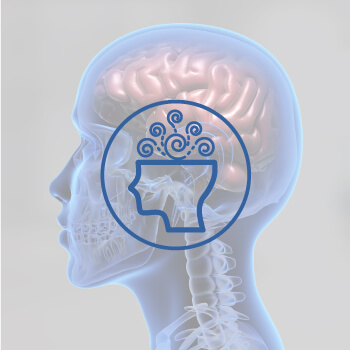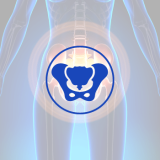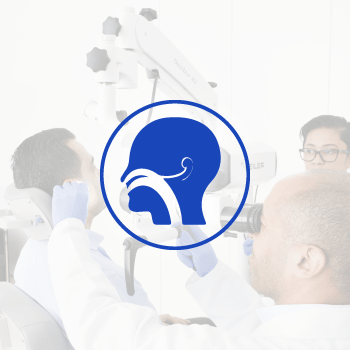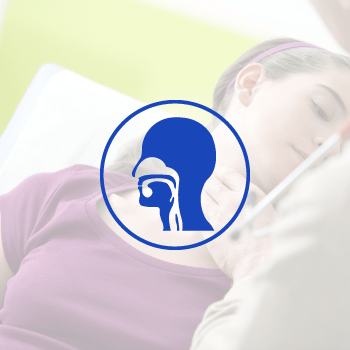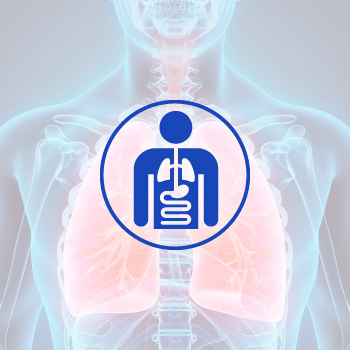VOCAL CORD DISORDERS
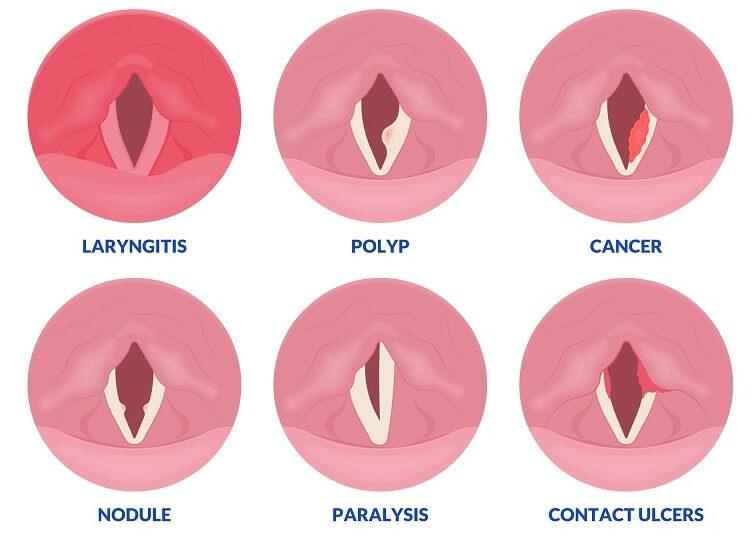
Vocal Cord Disorders
The vocal cords are crucial for producing voice and speech, as they vibrate and adjust to create sound when air passes through them.
- Types of vocal cord disorders
- Causes
- Symptoms
- Treatment
There are various types of vocal cord disorders, each with its own causes and symptoms. Some common vocal cord disorders include:
- Laryngitis: Inflammation of the vocal cords, often caused by viral or bacterial infections, excessive voice use, or irritants like smoking or pollution. Laryngitis can result in hoarseness, a weak voice, or loss of voice.
- Vocal Cord Nodules: Vocal cord nodules are noncancerous, callous-like growths that form on the vocal cords. They typically occur bilaterally, meaning they affect both vocal cords. Nodules are often the result of vocal abuse or overuse, such as excessive shouting, screaming, or improper singing techniques. They are common in individuals who use their voices extensively, such as singers, teachers, speakers or call center operators. Nodules can lead to hoarseness, a rough or breathy voice, and vocal fatigue.
- Vocal Cord Polyps: Vocal cord polyps are larger, fluid-filled lesions that can develop on one or both vocal cords. They are usually caused by vocal abuse, smoking, or acid reflux. Polyps can lead to similar symptoms as nodules, including hoarseness, breathiness, and changes in voice quality. Unlike nodules, polyps may have a more significant impact on voice production due to their size and location.
- Vocal Cord Paralysis/Paresis: Paralysis occurs when one or both of the vocal cords cannot move, leading to problems with voice production and breathing. It can result from nerve damage due to surgery, injury, viral infections, or neurological conditions.
- Reinke’s Edema (Polypoid Corditis): Reinke’s edema is a condition where the vocal cords become swollen and filled with fluid. It is often associated with chronic exposure to irritants, such as smoking or exposure to other noxious substances. This condition can lead to a deep, gravelly voice, and it is more commonly seen in individuals who smoke heavily.
- Laryngeal Cancer: Although less common, cancer can affect the vocal cords, leading to changes in voice quality, persistent hoarseness, throat pain, or difficulty swallowing.
Vocal cord disorders can arise from different factors, often related to vocal misuse, infections, or structural issues. Some common causes include:
- Vocal Abuse or Overuse
- Viral or Bacterial Infections
- Smoking and Other Irritants
- Acid Reflux (Gastroesophageal Reflux Disease, GERD)
- Neurological Conditions
- Trauma or Injury to the Larynx
- Chronic Coughing or Throat Clearing
Symptoms of vocal cord disorders can vary depending on the specific condition and its severity. Common symptoms include:
- Hoarseness or Raspy Voice
- Rough or Breathiness Voice
- Vocal Fatigue or Strain
- Voice Loss (Temporary or Persistent)
- Throat Pain or Discomfort
- Difficulty Swallowing or Feeling of Lump in Throat
- Changes in Voice Pitch or Quality
The treatment for vocal cord disorders depends on the type of disorder and its underlying cause. Some common treatment options include:
- Vocal Rest: Resting the voice and avoiding vocal strain to allow the vocal cords to heal.
- Voice Therapy: Working with a speech-language pathologist who specializes in treating voice, speech, language, or swallowing disorders.
- Behavioral modifications: Quitting smoking and reducing exposure to other irritants can support vocal cord health.
- Medications: In cases of vocal cord infections or acid reflux, medications may be prescribed to address the underlying issue.
- Surgery: Surgical intervention may be necessary to remove vocal cord nodules, polyps, or address more severe conditions like vocal cord paralysis.
- Cancer Treatment: If laryngeal cancer is diagnosed, treatment may involve surgery, radiation therapy, and/or chemotherapy.
CO2 Laser Surgery at HSMC
At HSMC, the utilization of CO2 (carbon dioxide) laser technology in surgical procedures marks a significant advancement in their treatment capabilities. The adoption of CO2 lasers enhances the precision and effectiveness of various surgical interventions, particularly in the realm of vocal cord disorders.
CO2 laser surgery allows for precise removal of abnormal tissues, such as polyps, nodules, and papillomas, while minimizing damage to surrounding healthy tissue. It offers advantages such as minimal tissue damage, reduced bleeding, and faster healing. Recovery time varies depending on the extent of the surgery and the individual’s healing ability. However, compared to traditional surgery, recovery is often faster due to reduced tissue trauma.
Vocal cord disorders can significantly impact an individual’s voice and quality of life. If you suspect you have a vocal cord disorder or are experiencing persistent voice changes or discomfort, it’s essential to seek evaluation and treatment from an ear, nose, and throat (ENT) specialist or a laryngologist. Early recognition, proper diagnosis, and appropriate treatment are crucial for managing these conditions effectively and preserving vocal health.





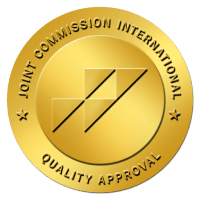
 أنقر هنا
أنقر هنا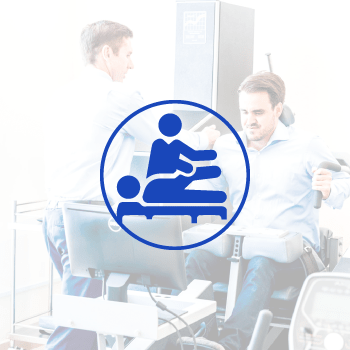 أنقر هنا
أنقر هنا
